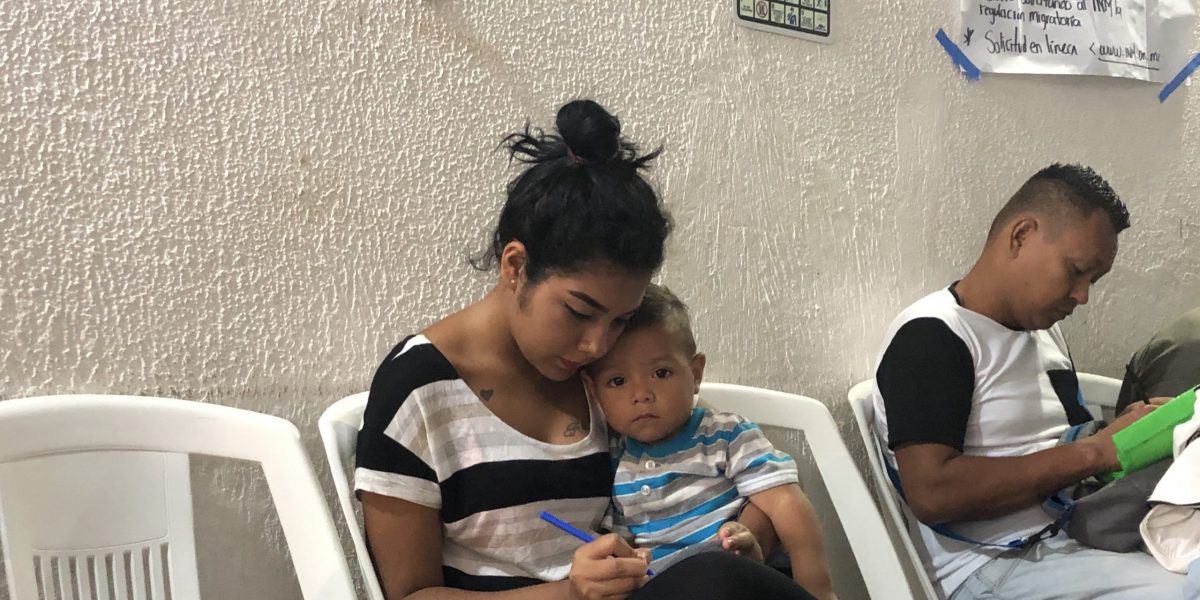JRS/USA: Consequences of Reinstating Family Detention
24 April 2023|Chloe Gunther

Families are the most fundamental units to healthy and thriving communities. Yet, the immigration system in the United States continues to implement policies that undermine their integrity.
The Biden Administration is set to finally rescind Title 42, a pandemic-era public health order that effectively stopped people from seeking asylum at the U.S. – Mexico Border. While this is a major, positive step in trying to mitigate the dire situation migrants face at the border, the Administration has quickly begun discussing other forms of deterrence to discourage people from exercising their human right to move—including family detention.
Family detention is the practice of incarcerating migrant families, including children as young as infants, while awaiting immigration court hearings and it is one of the most harmful deterrence tactics currently on the table.
The U.S. has a long history of detaining families. Both the Obama and Bush Administration carried out the practice as more people fleeing violence, political unrest, and economic insecurity tried to come to the U.S. As many will remember, in 2018, the Trump Administration took this inhumane process a step further by separating migrant families.
Part of the Trump Administration’s “Zero Tolerance” protocols, family separation tore over 5,000 children from their parents and guardians, despite warnings from officials of the “traumatic psychological injury” these families would endure.
Eventually, in response to public outcry, the Trump Administration rescinded family separation and focused on enforcing family detention instead.
In July of 2018, a woman, who wished to remain anonymous, shared her story and experience in detention with her 6-year-old son. She described the conditions as prison like. “It just exchanges one form of trauma for another” she told the New York Times.
Before stepping into office, the Biden Administration campaigned on humane immigration reform and once elected, took steps to reverse some of the harmful, Trump-era policies like family detention. But in early March, White House and homeland security advisors reportedly began discussing what it would take to begin family detention again.
Years of scientific research and data show that detaining migrant children, with or without their caretakers, has lasting effects with mental health as one of the most permeating concerns due to higher rates of anxiety, depression, and PTSD occurring during formative years. When children are separated from their caretakers, the consequences can be devastating to the relationship, which is vital to a child’s healthy psychological development.
Children who have been detained often face educational challenges as well, as school performances tend to be low. The stress, trouble sleeping, and concerns about their family overwhelm their ability to focus in the classroom. While education is key to long-term success and stability, once a family is potentially released from detention, they still must cope with the lasting barriers from psychological and physical repercussions.
Growing into adulthood, these children often have difficulty trusting adults and institutions and do not feel safe putting their confidence in governments and systems.
Now is the time to act and urge the Biden Administration to enact humane immigration policies that support migrant families and foster better pathways to asylum instead of reimplementing severely damaging practices.
To ask your representatives to support asylum today, click here: Take Action to Protect US Asylum.



